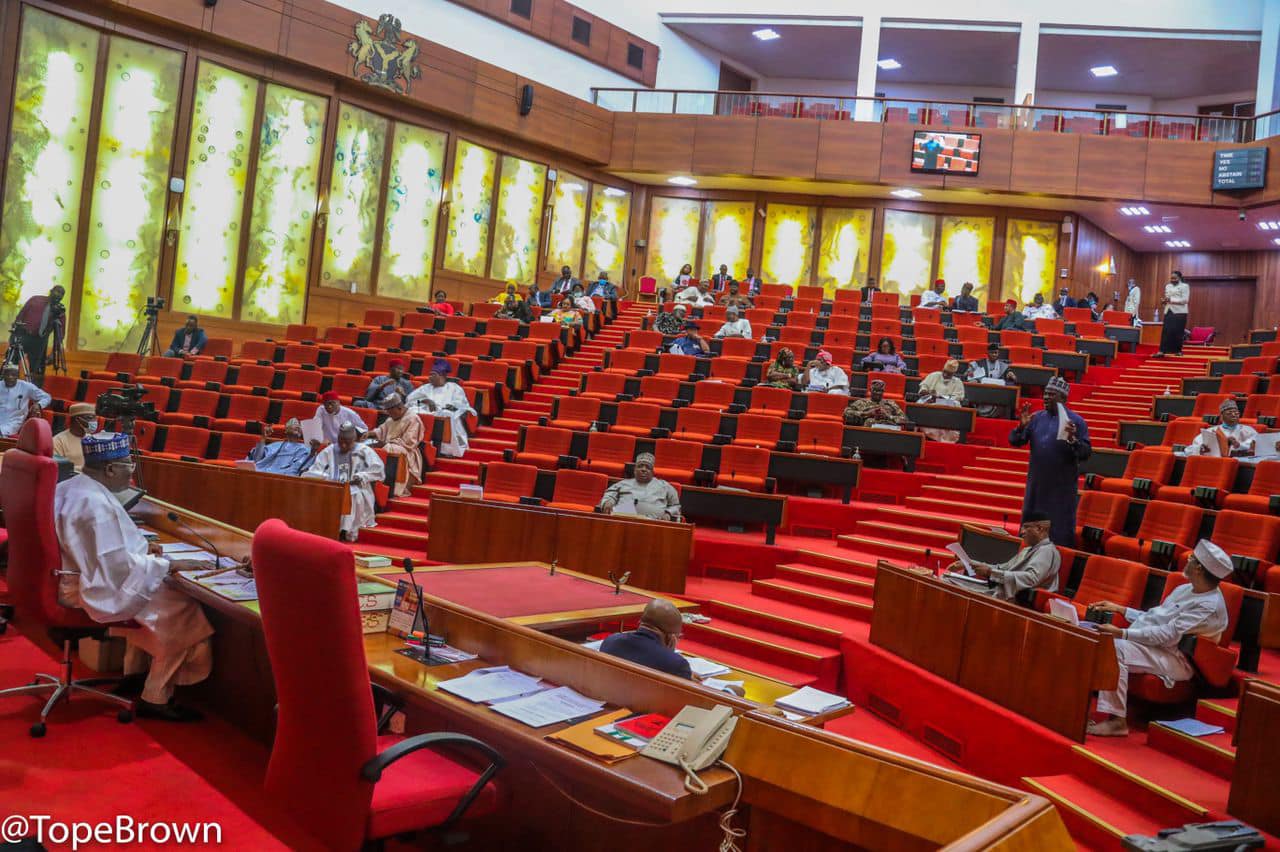The Senate decides to limit the powers of the president to dismiss the president of the EFCC
A bill that seeks to limit the president's powers to remove the chairman of the anti-corruption agency, EFCC, passed second reading in the Senate on Tuesday.
The bill seeks to amend the EFCC Act to make termination of the appointment of the chairman of the commission subject to Senate confirmation “to ensure job security.”
He is sponsored by Senate Minority Whip Chukwuka Utazi (PDP, Enugu North).
DeliberationLeading the debate, Mr. Utazi said that one of the strong points of the bill is the job security of the chairman of the commission. And to do that, he said, the Senate should be required to approve the president's removal of any president, as he does when appointing.
He said the National Assembly has ensured that the leaders of other anti-corruption agencies like the ICPC and the Nigerian Financial Intelligence Unit (NFIU) enjoy job security by ensuring that their appointments and removals, as the case may be, are subject to confirmation by the Senate.
“That was not the case with the EFCC,” he told his colleagues. “Therefore, in this proposed amendment, it is intended to bring the EFCC into line with the other two government anti-corruption agencies. This will lead to optimal execution by the commission of the very important mandate entrusted to it. »
He also said that another proposed amendment is to limit the appointment of the President to EFCC staff members.
“As a new commission, it was understandable that its leadership was appointed from outside the commission, for obvious reasons,” he explained, referring to the EFCC. "However, the turning point for the commission came when this administration, which has anti-corruption as its mantra, took the pioneering and bold step of turning inward, within the commission to appoint the first executive chairman of the Economic and Financial Crimes Commission to lead it."

While congratulating the president on the decision, he said all that was required of the legislature was to amend the EFCC Act to prevent untrained EFCC staff from heading the commission, in the future.

This, he said, will enhance professionalism in the service of this anti-corruption agency.
Submissions.Many senators spoke in favor of the proposed amendments.
Rivers Sen. George Sekibo said the amendment was primarily aimed at establishing continuity and consistency within the EFCC.

James Manager (PDP, Delta) said that if similar laws had been put in place for agencies such as the ICPC and NFIU, the same should be done for the EFCC.
READ ALSO: Police arrest fake EFCC agents who allegedly kidnapped and extorted residents“For a Commission as important as this, job security is very important,” he said. "We have to confirm any removal that is going to make the appointee very firm so that they are not afraid of what they have to do and that is the essence of this amendment."
“The other is the question of the term of office and when you talk about the person leaving, who should replace them? Is it from within the service or from anyone outside the Commission?”

A bill that seeks to limit the president's powers to remove the chairman of the anti-corruption agency, EFCC, passed second reading in the Senate on Tuesday.
The bill seeks to amend the EFCC Act to make termination of the appointment of the chairman of the commission subject to Senate confirmation “to ensure job security.”
He is sponsored by Senate Minority Whip Chukwuka Utazi (PDP, Enugu North).
DeliberationLeading the debate, Mr. Utazi said that one of the strong points of the bill is the job security of the chairman of the commission. And to do that, he said, the Senate should be required to approve the president's removal of any president, as he does when appointing.
He said the National Assembly has ensured that the leaders of other anti-corruption agencies like the ICPC and the Nigerian Financial Intelligence Unit (NFIU) enjoy job security by ensuring that their appointments and removals, as the case may be, are subject to confirmation by the Senate.
“That was not the case with the EFCC,” he told his colleagues. “Therefore, in this proposed amendment, it is intended to bring the EFCC into line with the other two government anti-corruption agencies. This will lead to optimal execution by the commission of the very important mandate entrusted to it. »
He also said that another proposed amendment is to limit the appointment of the President to EFCC staff members.
“As a new commission, it was understandable that its leadership was appointed from outside the commission, for obvious reasons,” he explained, referring to the EFCC. "However, the turning point for the commission came when this administration, which has anti-corruption as its mantra, took the pioneering and bold step of turning inward, within the commission to appoint the first executive chairman of the Economic and Financial Crimes Commission to lead it."

While congratulating the president on the decision, he said all that was required of the legislature was to amend the EFCC Act to prevent untrained EFCC staff from heading the commission, in the future.

This, he said, will enhance professionalism in the service of this anti-corruption agency.
Submissions.Many senators spoke in favor of the proposed amendments.
Rivers Sen. George Sekibo said the amendment was primarily aimed at establishing continuity and consistency within the EFCC.

James Manager (PDP, Delta) said that if similar laws had been put in place for agencies such as the ICPC and NFIU, the same should be done for the EFCC.
READ ALSO: Police arrest fake EFCC agents who allegedly kidnapped and extorted residents“For a Commission as important as this, job security is very important,” he said. "We have to confirm any removal that is going to make the appointee very firm so that they are not afraid of what they have to do and that is the essence of this amendment."
“The other is the question of the term of office and when you talk about the person leaving, who should replace them? Is it from within the service or from anyone outside the Commission?”
What's Your Reaction?






















